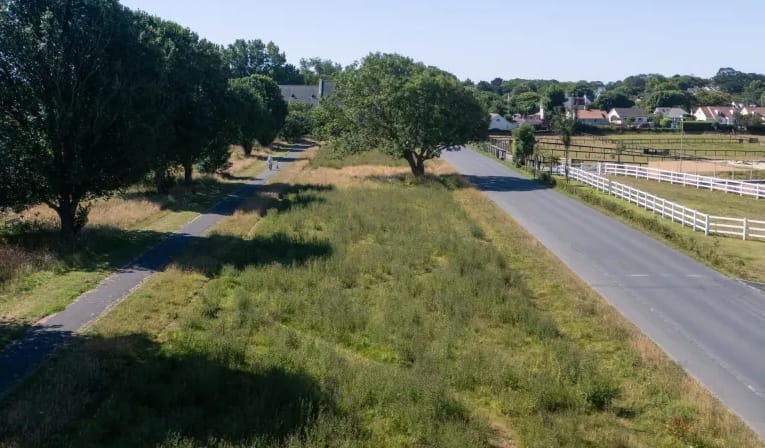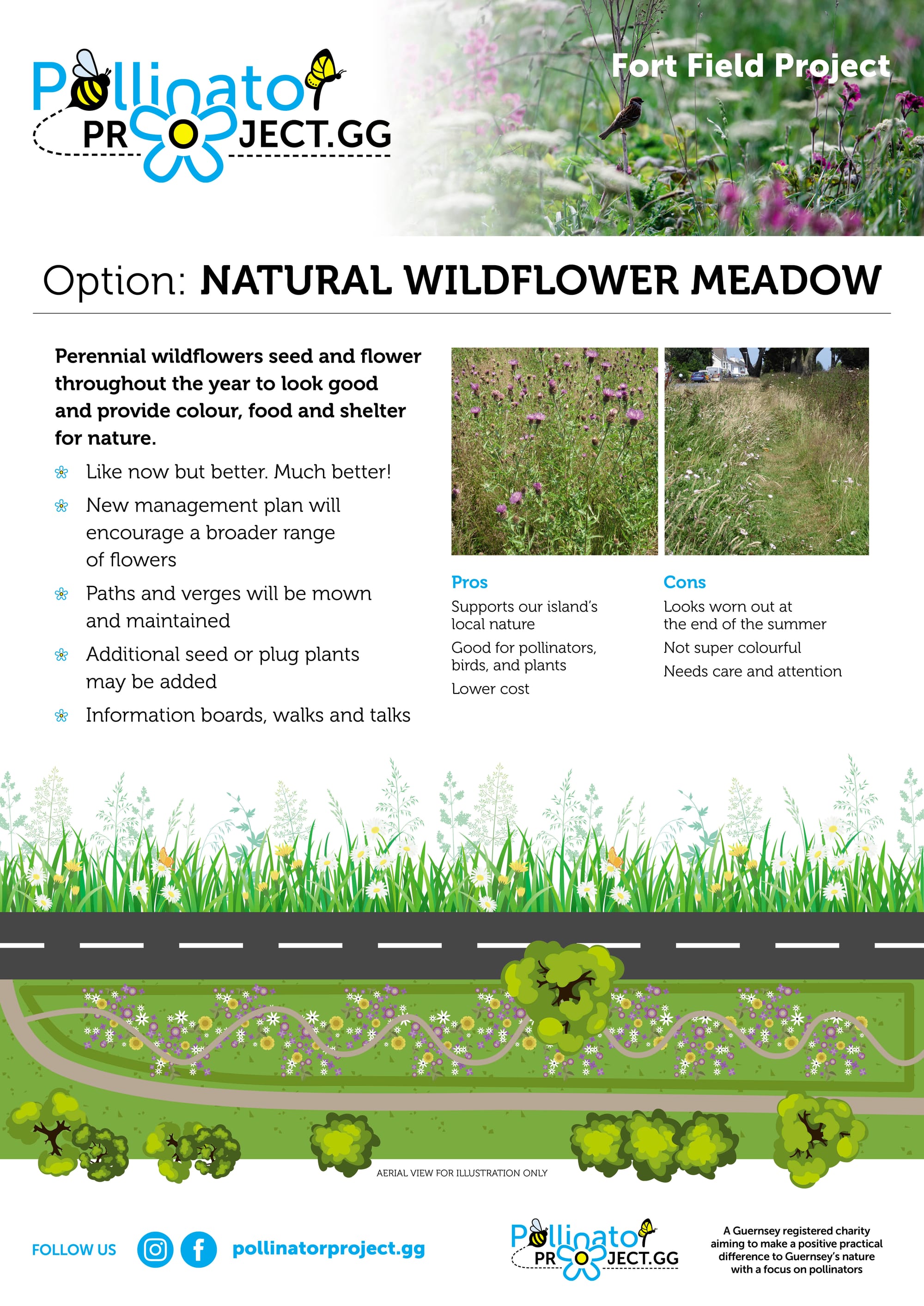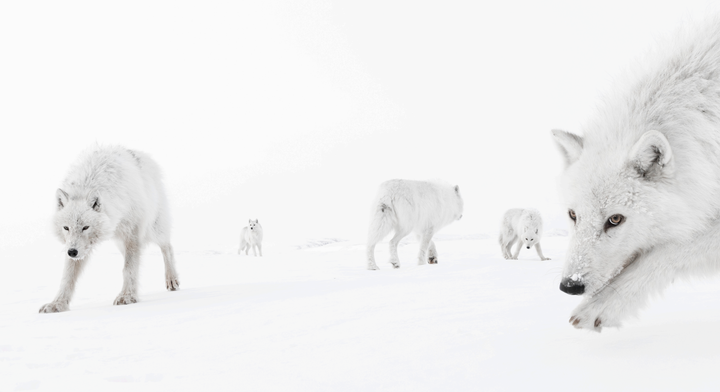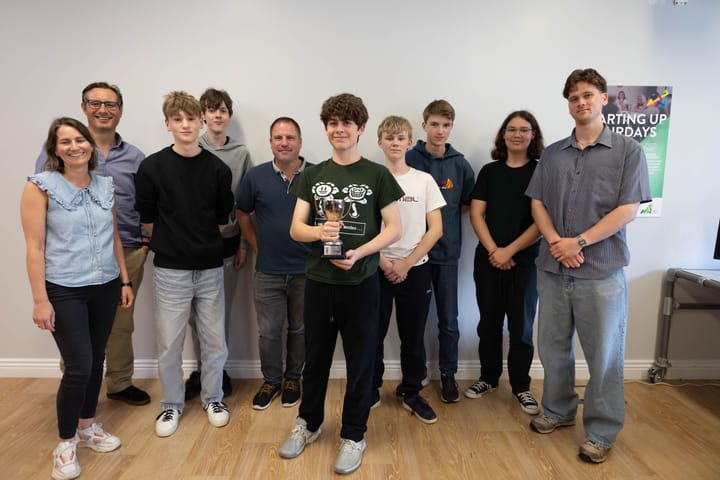Backing for improved wildlife meadow at Fort Field

- The Pollinator Project conducted a public consultation regarding the future of Fort Field.
- Over 95 questionnaires and 86 written comments were collected.
- 74% of respondents supported the continued management of the native wildflower meadow.
- A three-year Service Level Agreement will begin in January 2026 to implement recommendations.
- The project aims to demonstrate effective habitat management to enhance biodiversity across Guernsey.
The Pollinator Project has released the results of a public consultation regarding the future of Fort Field, an area of grassland adjacent to Fort Road.
They invited local residents to share their views on four landscape options aimed at enhancing the existing ecological features of the site.
The consultation was prompted by increasing community interest in managing semi-wild spaces to balance aesthetics, accessibility, and nature conservation.
A total of 95 questionnaires were completed, along with 86 written comments. The overwhelming majority, 74% of respondents, expressed support for the ongoing management of the native wildflower meadow.
The second most favoured option, receiving 14% of the votes, was to convert the area into mown grass.
Additionally, over half of the participants favoured the introduction of native hedging in the scrub area, while nearly half supported planting an avenue of native cherry trees to enhance structural diversity and seasonal interest.
Gordon Steele, Chair of The Pollinator Project, said: “The strength of public support has been hugely encouraging. Islanders clearly recognise the value of spaces that support wildlife as well as people. We were especially pleased at how constructive the suggestions were and that will help us shape the site for the long term.”

The Pollinator Project approached the States in January with a proposal to change how Fort Field was being managed having decided that without more intensive cutting and removing decaying grass and cuttings the chances of the area thriving were limited.
In 2017 two areas of about 1.44 acres were sown with a mix of annual and perennial native wildflower seeds. In the first year there was a show of colour as the annuals bloomed, followed in the second year by perennials which form the basis of the meadows today.
The charity says that the annuals will not flower again unless they are re-sown or the ground is cultivated.
The States has allowed the charity to work on the field this year while it also carried out the consultation.
Steele emphasised the continuous nature of that consultation process and welcomed ongoing feedback from the community.
Currently, over 70 locals have joined the Friends of Fort Field group, and volunteers have participated in maintenance activities for the meadow.
Steele noted, “This isn’t just about one field. It’s about showing how small changes in land management can deliver real gains for nature across the island and still look good.”
Experts in various fields, including local conservation groups and organisations such as La Societe Bat and Trees for Life, have contributed to the project.
The Soil Farm has been involved in the management by taking the cut grass.
Support has also been received from the States' team at Agriculture, Countryside and Land Management Services.
The recommendations that emerged from the consultation will inform a three-year Service Level Agreement set to commence in January 2026.
Who are The Pollinator Project?
The Pollinator Project is a registered Guernsey charity which was founded in 2017.
The focus is on pollinators (insects like bees, butterflies, beetles and even flies) that visit flowering plants. They have an essential role in food production as well as keeping the colour in our gardens and wild spaces.
The charity runs a Bailiwick wide education programme with annual presentations to over 4000 students, the largest art competition in the islands with regularly over 1400 entries, and provides advice, help and practical assistance to schools, individuals and businesses that are looking to create ‘pollinator patches’ large and small across Guernsey.
The Pollinator Project uses its longstanding relationships with UK universities, governments and environmental organisations to run science projects, campaign against the use of pesticides and provide experience in nature and science for interns throughout the year.




Comments ()